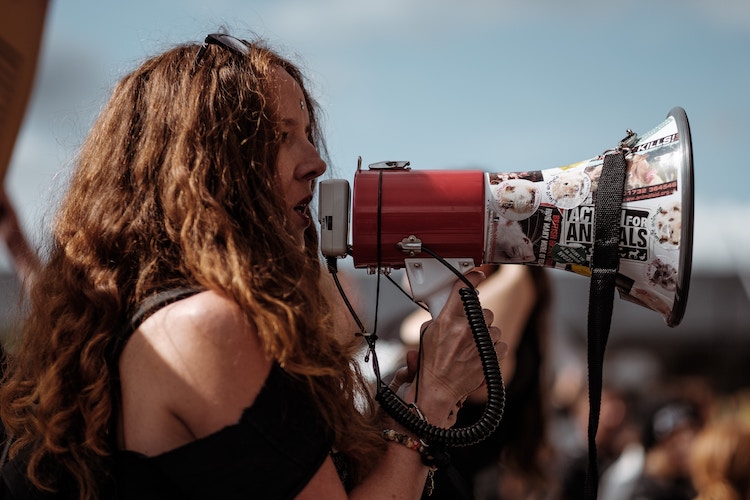ImpactAlpha, Nov. 19 – It’s time for impact investors to speak more like activists.
The Global Steering Group on Impact Investment’s abrupt relocation of its global summit from protest weary Santiago to Buenos Aires highlighted a broader disconnect between impact investing and the mounting conflicts between citizens and the governments and corporations that have power over them.
At least part of that disconnect begins in how impact investors communicate.
Impact investors speak about the need for action by the investors, bankers, and institutions, often casting the practice as an elite exercise.
- Speaking only in the language of market-rate returns potentially alienates the middle-class, working-class, and poor people who action on climate change and inequality, but also the top-down system that created and calcified them.
- Trumpeting data on returns on an impact investment might be good news to a skeptical banker, but it’s going to sound an awful lot like profiting off the poor to everyone else, even if that’s not the case.
- Framing assets under management as the primary arbiter of importance or credibility appears to condone the wealth gaps borne from centuries of marginalizing women and nonwhite people.
- An emphasis on fund size suggests that change is not something that anyone without millions of dollars at their disposal can create — that it has to happen to us, not with us.
In other words, talking about impact investing in terms of numbers makes the case for it only to the elite group of people who see the world in terms of numbers. To everyone else, impact investing ends up looking a lot like rearranging the deck chairs on the Titanic: making somewhat better choices within the same structure, but not getting us any closer to a better one.
The truth is: climate strikers led by Greta Thunberg and the protestors on the streets of Santiago may be more pro-business than the leaders dragging their feet on change (see, “Impact investing’s road to relevance led through Santiago – until it didn’t”). Impact investors need to join them and start speaking the language of social and environmental justice.
My path to impact investing began in activism. Protesting inequalities exposed by Hurricane Katrina eventually led me to question why business and civil society were structured the way they were.
Reading the profiles of the average Chilean protester, I was struck by how similar their backgrounds are to mine: raised middle class and struggling to stay there amid rising costs in health care, tuition, transportation, and other basic living expenses.
Many impact investors think like activists. They want systemic change and to right historical wrongs. They rarely speak like them.
There’s a reason why most people outside finance have never heard of “impact investing.” It’s because we’ve never tried to make the case to them, or given them a role.
People everywhere want to be part of a solution. It’s time we spoke their language.
Meg Massey is the founder of Sanspeur and a contributor to ImpactAlpha.











